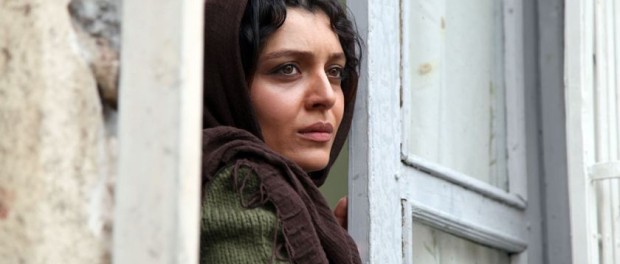Review of Oblivion Season: When Freedom Eludes Us
Only at the very end of the Montreal World Film Festival did I realized that I had a preference for films with strong female characters at the center of their story. I had the privilege of seeing some beautiful movies at this year’s WFF. I hope with all my heart that Montrealers will not lose such a rewarding and valuable festival.
My journey to the heart of the world’s film began with the movie Oblivion Season in the Focus on World Cinema category. It’s an Iranian film directed by Abbas Rafei. While Fariba, the main character of this film, thought she could escape her former life of prostitution and misery, she finds herself trapped again. Her husband Morteza holds her captive. This violent man passionately reiterates that he left all he had, that he has abandoned his former life for her.
When her husband is hurt in a car accident, willing to pay hospital charges, Fariba works as a driver. We then follow her in the streets where she drives with men, women, and their goods. The images of the city of Tehran are beautiful. The long time spent travelling make us travel with Fariba. We are committed to this woman and her nephew which will travel with her later. People often tell her that a woman like her should not drive. Women cannot work and they are not allowed to speak.
Despite the difficulties, Fariba works. Fariba does the work of men. According to her society, she should not work but rather cook. But Fariba does this work because she needs money. The men talk loudly, scream, and hurt others. But they are men, after all, as the neighbour says to Fariba. Should she then forgive and accept them because they are men? The character of Morteza, her husband, cries; he is destroyed by the treachery of Fariba. He suspects her to be in communication with the people of her former life. When Fariba returns to the hospital to pay for her husband’s hospital charges, he has already left. His family came before her while she was supposedly his only family. When Fariba goes to Morteza’s house, there is a group of angry women who welcome her only to beat her. We seem to forget Fariba endures everything.
The beauty of this film lies not only in pictures but in the elegance of the treatment of the subject. The film is about prostitution, but it is never explicitly shown. This is a powerful film and the fate of Fariba is terrible. The director said it is difficult, in Iran, to make a film about prostitution because the government refuses to believe in the existence of the issue. Oblivion Season wanted to show how a woman manages to navigate in an environment dominated by men and religion, which is one thing the film manages to do very well.
Oblivion Season screened as part of the Montreal World Film Festival.







